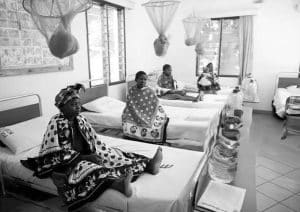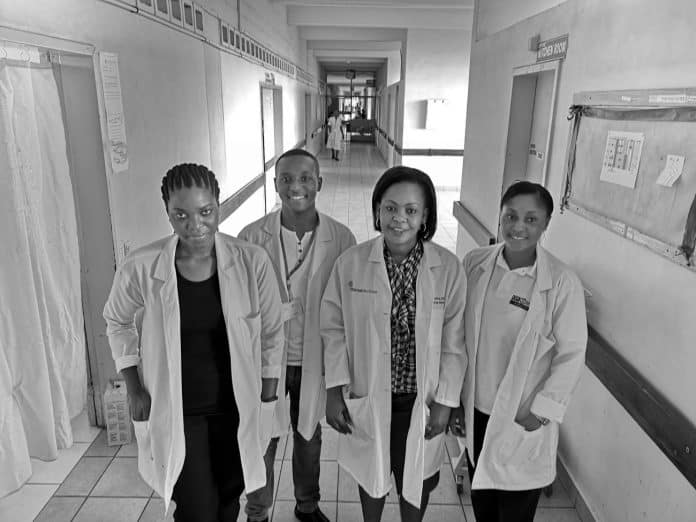Introduction to Magai Hospital
Magai Hospital is a leading healthcare facility located in the Shinyanga region of Tanzania, dedicated to providing quality and accessible medical services to the local community. As a vital institution in the region, Magai Hospital has been at the forefront of improving healthcare delivery and addressing the pressing medical needs of the population.
Overview of the Healthcare Situation in Shinyanga Region

The Shinyanga region faces significant challenges in healthcare, including limited access to medical facilities, shortage of healthcare professionals, and high prevalence of communicable and non-communicable diseases. The region’s rural and remote nature, coupled with socioeconomic disparities, has further exacerbated these issues, making it imperative for institutions like Magai Hospital to play a crucial role in addressing these concerns.
The History and Mission of Magai Hospital
Magai Hospital was established in the 1970s with the primary goal of improving healthcare access and outcomes for the people of Shinyanga. Over the years, the hospital has evolved to become a beacon of hope, providing comprehensive medical services and serving as a vital resource for the community. The hospital’s mission is to deliver high-quality, compassionate healthcare that is affordable and accessible to all, regardless of their socioeconomic status.
Facilities and Services Provided by Magai Hospital
Magai Hospital boasts a wide range of facilities and services to cater to the diverse healthcare needs of the Shinyanga region. The hospital’s state-of-the-art infrastructure includes:
- Inpatient and Outpatient Departments
- Surgical and Emergency Care Units
- Maternal and Child Health Clinics
- Diagnostic and Laboratory Services
- Pharmacy and Medication Dispensary
- Rehabilitation and Physiotherapy Facilities
- Health Education and Promotion Programs
These comprehensive services ensure that patients receive holistic and integrated care, addressing their medical needs from prevention to treatment and recovery.
Healthcare Challenges in the Shinyanga Region
Despite the efforts of Magai Hospital and other healthcare providers, the Shinyanga region continues to face significant challenges in healthcare delivery. These include:
- Limited access to medical facilities, especially in rural and remote areas
- Shortage of healthcare professionals, including doctors, nurses, and allied health workers
- High prevalence of communicable diseases, such as malaria, HIV/AIDS, and tuberculosis
- Rising incidence of non-communicable diseases, including diabetes, hypertension, and cancer
- Inadequate funding and resources for healthcare infrastructure and service expansion
Addressing these challenges requires a multi-faceted approach that involves collaboration between healthcare institutions, government agencies, and community stakeholders.
Initiatives and Projects Undertaken by Magai Hospital to Improve Healthcare Delivery
In response to the healthcare challenges in the Shinyanga region, Magai Hospital has undertaken various initiatives and projects to strengthen healthcare delivery and improve patient outcomes. These include:
- Outreach and Mobile Clinics: Magai Hospital has established a network of mobile clinics that travel to remote and underserved communities, providing essential medical services and health education.
- Community Health Worker Program: The hospital has trained and deployed a cadre of community health workers to serve as liaisons between the hospital and the local communities, promoting preventive healthcare and early disease detection.
- Capacity Building and Training: Magai Hospital collaborates with local and international partners to provide continuous training and professional development opportunities for its healthcare staff, ensuring they are equipped with the latest skills and knowledge.
- Infrastructure Upgrades: The hospital has invested in upgrading its facilities, equipment, and technology to enhance the quality and efficiency of the services it provides.
- Innovative Financing Mechanisms: Magai Hospital has explored alternative financing models, such as health insurance schemes and community-based health funds, to improve affordability and accessibility of healthcare services.
These initiatives have contributed to the hospital’s ongoing efforts to address the healthcare needs of the Shinyanga region and improve overall health outcomes.
Success Stories and Impact of Magai Hospital in the Community
Magai Hospital’s unwavering commitment to delivering quality healthcare has resulted in numerous success stories and a significant impact on the local community. Some notable examples include:
- Maternal and Child Health Improvements: The hospital’s maternal and child health clinics have contributed to a reduction in maternal and infant mortality rates, ensuring that women and children receive comprehensive prenatal, delivery, and postnatal care.
- Infectious Disease Management: Magai Hospital’s efforts in combating communicable diseases, such as malaria and HIV/AIDS, have led to improved disease management and increased access to preventive and treatment services.
- Chronic Disease Management: The hospital’s specialized clinics for non-communicable diseases, such as diabetes and hypertension, have empowered patients to manage their conditions effectively and prevent complications.
- Community Engagement and Empowerment: Magai Hospital’s health education and promotion programs have raised awareness and encouraged community members to take an active role in maintaining their own health and well-being.
These success stories highlight the hospital’s positive impact on the health and quality of life of the people in the Shinyanga region.
Collaboration and Partnerships with Other Healthcare Organizations
Magai Hospital recognizes the importance of collaboration and partnerships in addressing the complex healthcare challenges faced by the Shinyanga region. The hospital actively engages with various stakeholders, including:
- Local and regional government health authorities
- Other healthcare facilities and providers in the region
- Non-governmental organizations (NGOs) and community-based organizations
- International development agencies and donor organizations
Through these partnerships, Magai Hospital has been able to leverage resources, share best practices, and implement innovative solutions to improve healthcare delivery and access.
Future Plans and Goals of Magai Hospital

Magai Hospital is committed to continuously enhancing its services and expanding its reach to better serve the healthcare needs of the Shinyanga region. The hospital’s future plans and goals include:
- Expansion of Facilities and Services: Magai Hospital aims to expand its physical infrastructure and introduce new specialized services, such as oncology, cardiology, and advanced surgical capabilities.
- Workforce Development: The hospital will continue to invest in the training and retention of healthcare professionals, ensuring a skilled and dedicated workforce to meet the region’s growing healthcare demands.
- Technological Advancements: Magai Hospital plans to integrate cutting-edge medical technologies and digital health solutions to improve the efficiency, accuracy, and accessibility of its services.
- Community Outreach and Engagement: The hospital will strengthen its community-based programs, focusing on health education, disease prevention, and the empowerment of local communities to take an active role in their own healthcare.
- Sustainable Financing Mechanisms: Magai Hospital will explore innovative financing models, such as public-private partnerships and social impact investments, to ensure the long-term sustainability of its operations and services.
These ambitious plans reflect Magai Hospital’s unwavering commitment to transforming the healthcare landscape in the Shinyanga region and improving the overall well-being of the community it serves.
Conclusion
Magai Hospital’s dedication to providing quality, accessible, and affordable healthcare has made it a vital institution in the Shinyanga region. Through its comprehensive facilities, innovative initiatives, and collaborative partnerships, the hospital has been at the forefront of strengthening healthcare delivery and making a tangible difference in the lives of the people it serves.
As Magai Hospital continues its mission to improve healthcare in the Shinyanga region, we invite you to join us in this noble endeavor. Your support, whether through financial contributions, volunteer work, or advocacy, can make a significant impact on the lives of those who rely on the hospital’s services. Together, we can build a healthier and more equitable future for the people of Shinyanga.
For more articles related to Hospitals in Tanzania, click here

































